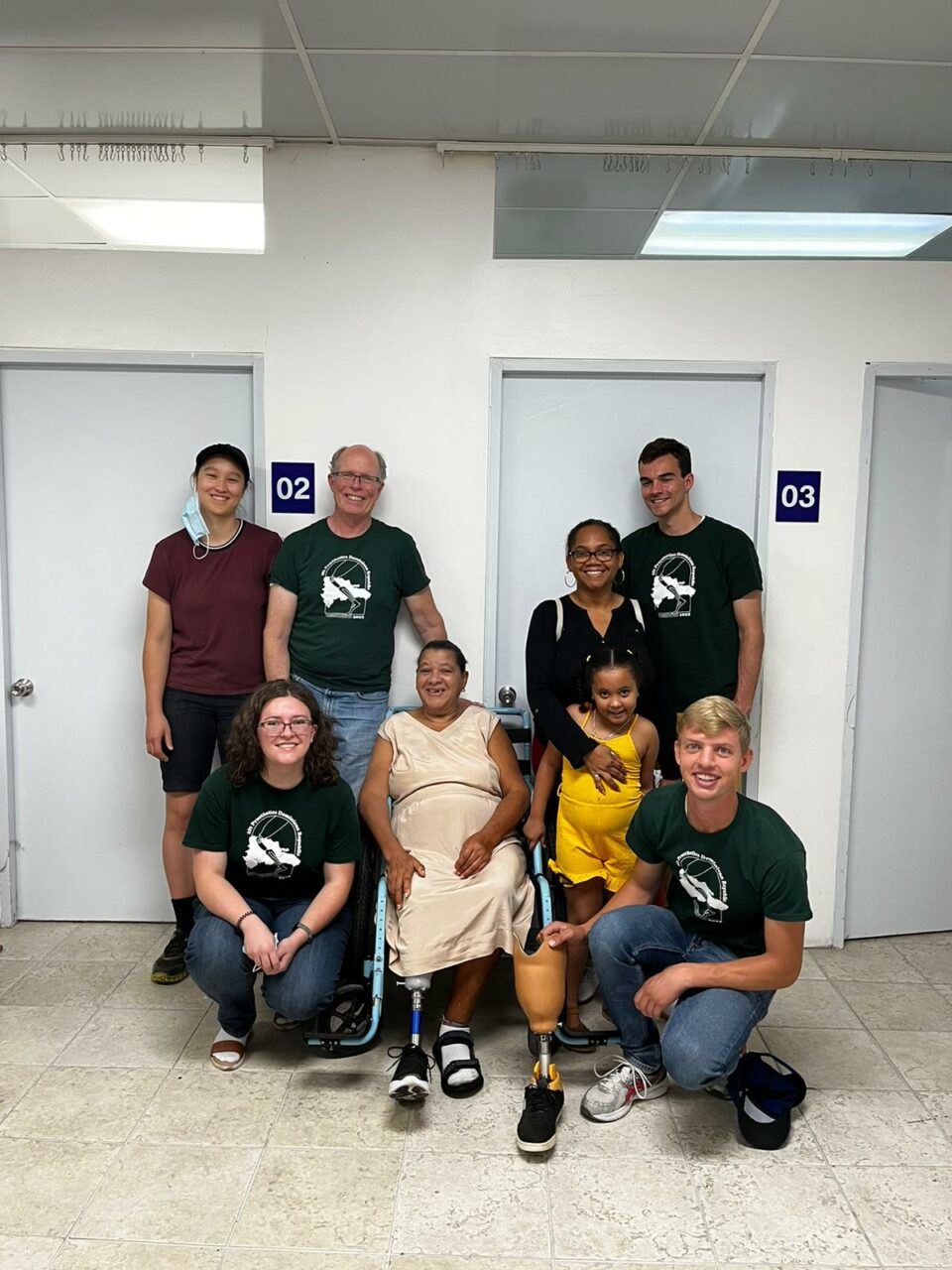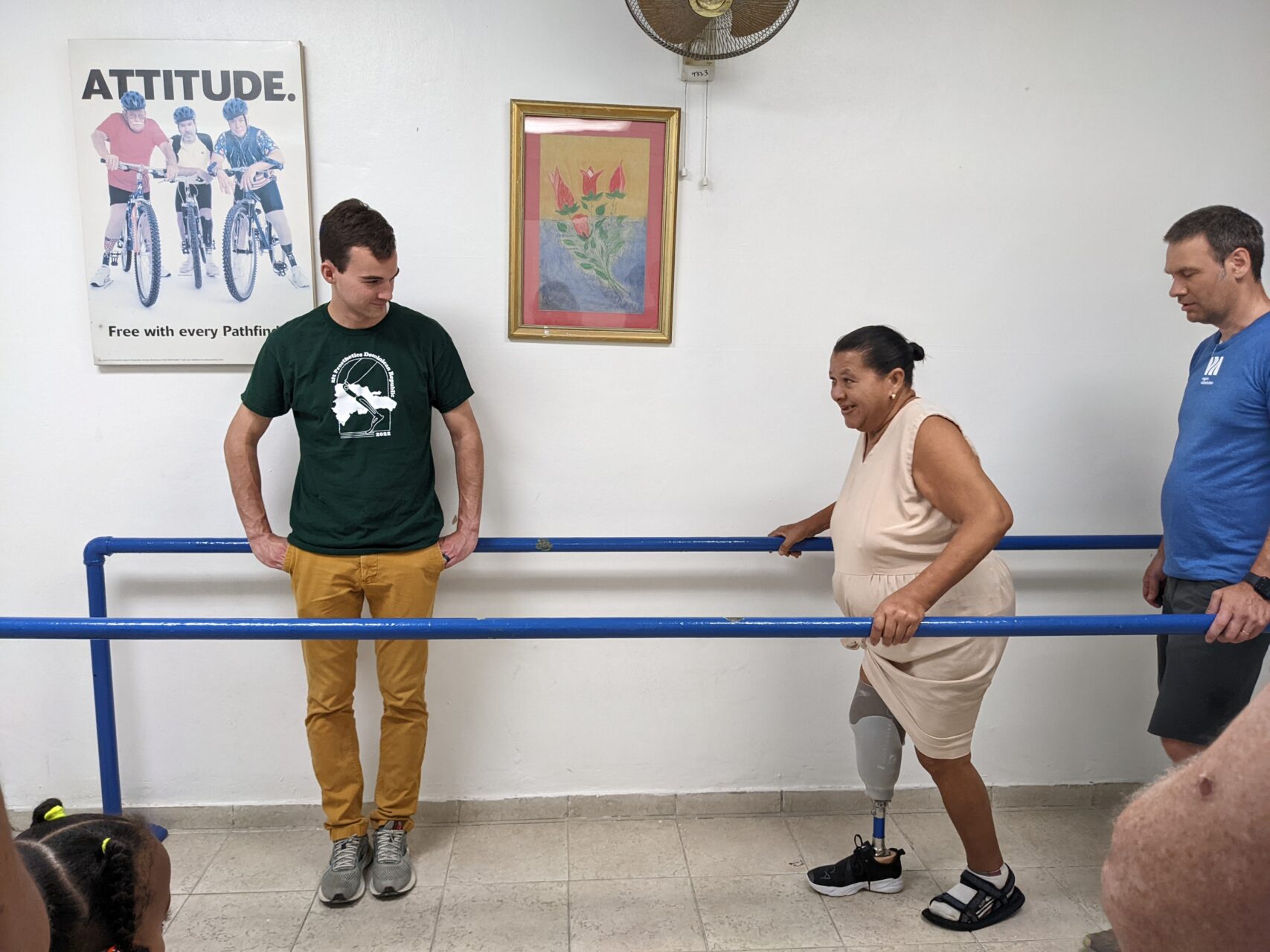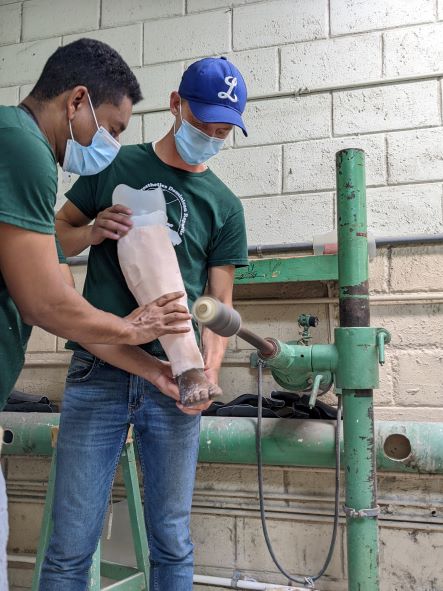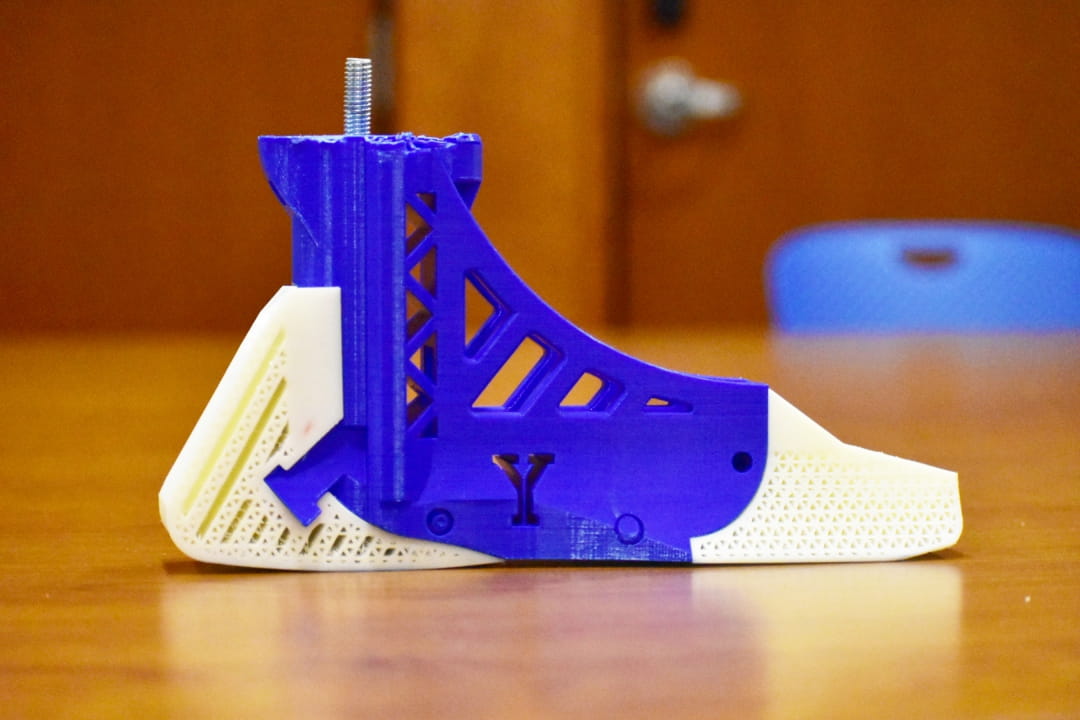
The BYU 2ft Prosthetics club, under the nonprofit 2ft Prosthetics organization, aims to help individuals by developing low-cost prosthetics.
Mason Kenney, a BYU student, is the president of the 2ft Prosthetics club. Although he knew he wanted to major in mechanical engineering, he said he was unsure about what he wanted to do with it until he got home from his mission.
Kenney said, “I had the opportunity to serve with a couple of people who had physical disabilities.”
Kenney said his mission president and one of his companions had cerebral palsy. Another missionary he served around was an amputee. He said he really loved serving around them but didn’t think he could make a career out of helping people with mobility issues.
After being released, Kenney said the movie “The Upside”, where the main character helps a quadriplegic, inspired him further to help individuals who could not move easily.
Upon having this realization, Kenney researched the topic and came across biomedical engineering and prosthetics. He said building and designing prosthetics has been his dream ever since.
Cera Gowans, a BYU student majoring in manufacturing engineering, decided to join the club because of a dream.
“When I was in high school, I had a dream that I was running a prosthetics clinic,” Gowans said. “I was like, that’s it, that’s the dream.”
Three weeks into Gowan’s first semester, she said she spoke to one of the students in her American heritage class about her future.
“He asked me what I wanted to do with my life,” Gowens said. “When I told him about my dream to be a prosthetist, he was so excited to tell me about the 2ft Prosthetics club.”
Gowans said she went to the club meeting that night and has not missed many meetings since.
The 2ft Prosthetics Club’s mission repeats that of the non-profit organization: “2ft Prosthetics seeks to restore dignity, foster self-reliance and confidence and improve the quality of life for amputees who do not have access to quality prosthetic legs.”
Kenney said the club has personally accomplished this by finding different opportunities to help students who want to go into this field.
“Last year we had actual amputees come in. While we were there, we were able to talk to them,” Kenny said. “One of them [said], this is such a cool thing, you guys are taking time to be able to figure out ways to help us do better and be better.”
Kenney said you could see the joy in each of the amputees who could see there are still people who are trying to improve those situations.
Another way the club accomplishes its mission is by taking a trip to a developing country through the associated nonprofit organization. The most recent trip was last year in the Dominican Republic.







Gowans, who went on the trip, said it was incredible to meet people and see how much prosthetics would change their lives. She said some of these people had prosthetics for up to nine years and some of them received their very first prosthetic.
Gowans said there were two different clinics they went to, with one of the clinics allowing for a hands-on experience throughout the process.
“There were about 18 people there that we were able to plaster cast and get their legs casted,” Gowans said. “We were able to help build the prosthetics, make the sockets, make every component, put it all together and then help fit the patients with their actual prosthetics in the course of about a week.”
Dr. Bill Pitt, a BYU chemical engineering professor, Advisor of the BYU 2ft Prosthetics Club and a board member of the nonprofit organization, also went on the trip.
The clinic that the trip group went to donated a week of their time without receiving reimbursement. According to Pitt, they made a big sacrifice and service to the people in their country.
According to Gowans, the average lifespan of a prosthetic is 2-3 years. “A typical foot costs upwards of $1,000 and for a good knee $5,000 to $10,000.”
Gowans said work is a big deal for a lot of people in developing nations. They get stuck in a poverty cycle where they are unable to buy a prosthetic or it breaks down. Therefore, they are unable to work to feed themselves and support their families.
Pitt said, “People who are or are not members of the club can go on these humanitarian trips. People in the community could volunteer to go on these trips. We’d love to have trained prosthetists in Utah Valley or the state of Utah or anywhere in the United States to go with us.”

In current projects, to make prosthetics cheaper, Kenney said the club has been working on different prototypes. One of which was a 3D printed prosthetic foot.

Kenney said the club’s research team is also working on a kit that is called the one size foot. The prosthetic is meant to be one-size-fits-all, costing only $50.
Kenney said the 2ft Prosthetics club is not just for engineering students. “We have an engineering team, a research team and a humanitarian team,” he said. “We can teach you from the ground up everything that you need to know.”
To donate funds and prosthetic parts, find out about upcoming trips and learn more, visit the 2ft Prosthetics website.




